To create memories we need to have food in process, scents over our heads, freshly peeled and chopped vegetables, fire in the stove, and many stories to tell…
Cooking for traditional cooks, essay by Lucía Pérez y Nicolás Roldán
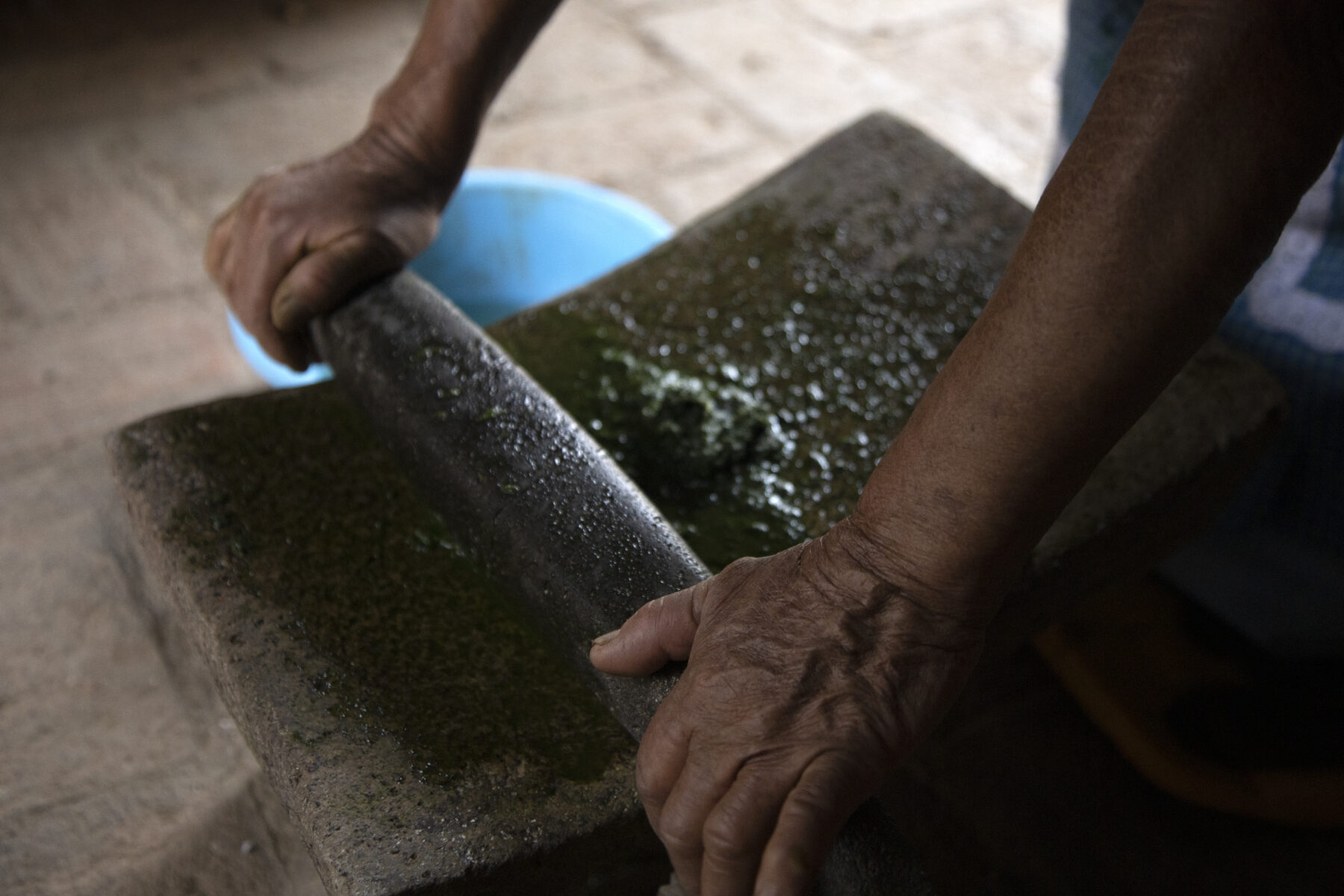
CoLaboratory Kitchen spent a month of fieldwork in Santo Domingo Tomaltepec. In this month many stories and seeds were shared, we created pots and maps, turned on and off many fires. Every day at lunchtime women that have been cooking all of their lives would surprise us with delicious dishes over the table, black, green, and yellow mole, horchata with prickly pear fruits, now time for a dessert, “don’t go without trying this yolk bread, here it goes another warm freshly made tortilla”, “I’m sure you want more”, “If you don’t go ask for seconds is because you didn’t like it”, “don’t leave without trying the foam atole”, “I’ll wait for you this Saturday to cook it together”, “I made this dish especially for you, without any pepper, not too spicy, meatless, without cheese, but with lots of love so that you eat it and like it a lot”. And of course, we would say thank you, of course, we asked for seconds, once, twice, some even three or four times. Everything is so delicious! There were times we wanted to take the lead in sharing something nice, but suddenly we were again sitting down on her tables, surrounded by more foam atole, more yolk bread, and in the second memela. Love isn’t only one way, it is always reciprocal, but we kept the desire that at least for one day they were the ones sitting down at the table. We then had the idea to cook for them.
Cooking for an Oaxacan cook is a daring task, or at least that is what we felt. They take care of all the details in the kitchen, flavor, color, texture, presentation and then they flood it with affection. We thought, felt, and discussed the menu. It had to have new flavors but not totally distant to their palate. We would have never pretended to cook something they do otherwise, it would have been a chronicle of an announced death. We chose a mix of dishes and ingredients that represented that which we wanted to share with them and we started working. An appetized referencing memory, distance, and territory. The main dish evoking local ingredients with flavors and textures from other places: pasta as an invitation to claim the present, the place, and the company without losing sight of other ways of doing, thinking, and feeling life, food, and the kitchen. Dessert was a mixture of flavors and textures, cocoa, mango, and cardamon: and aromatic spice that awakens that palate and announces the possibility of creating together new knowledge and flavors.
We would cook at the same compass but each at their own rhythm and like that, the dough would give up to the roller, the sauce to the fire, fruits, and some unfortunate finger to the knives. Time would fly like water through the hands and would simultaneously stop to laugh, share and give thanks for the moment and the intention. And in the kitchen as the anteroom, Biology, History, Economics, Arts, and Sciences would mix like eggs and flour to allow us to create a dialogue of looks and flavors with our guests. Our worlds and trajectories converge around a common intention, create a space for them. When the time arrived, we dressed with our best smiles and left to enjoy the evening.
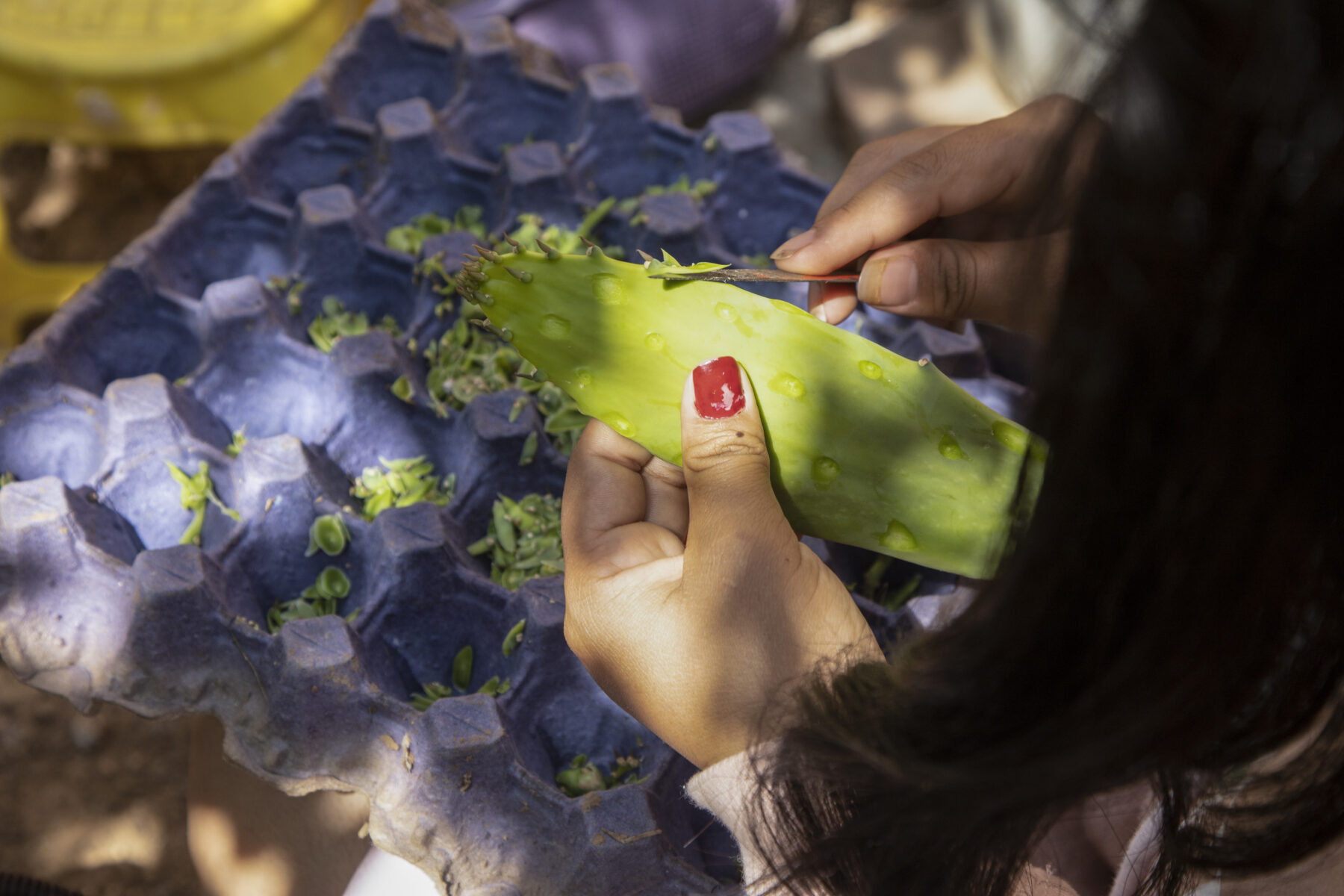
Mole
Chichilo
Yerbatole
Enchiladas
Chili chicken
Patacones
Cheese and pumpkin flower ravioli
Cheese and epazote ravioli
Chichilo ravioli
Mango lassie
Sharing
Enjoying
Tasting
Thanking
Joining
Remembering
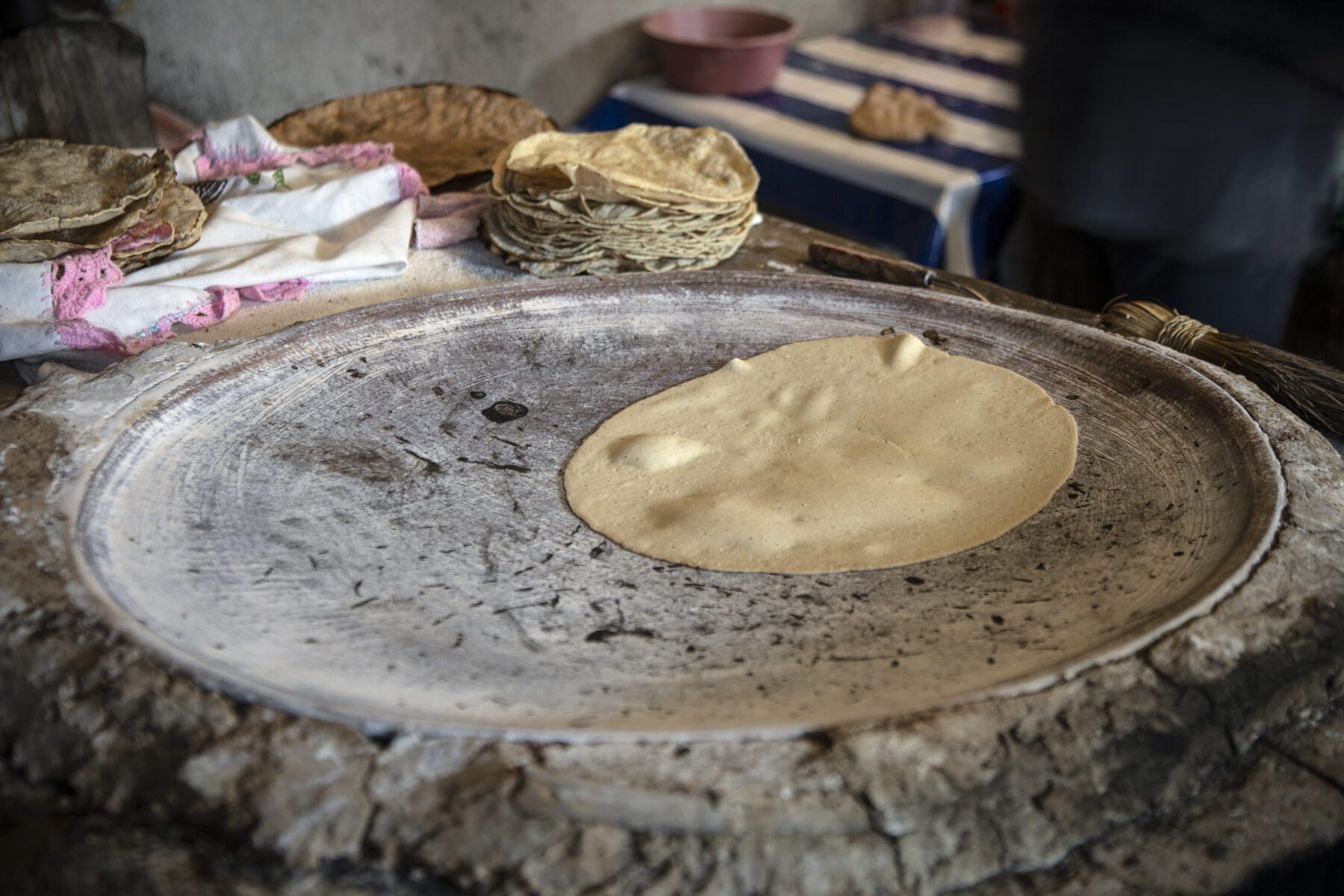
The kitchen as anteroom, the table as stage, the food as an excuse
…to construct dialogues and spaces were memories, histories, likes and dislikes may bloom
….to construct together memories that remain in the minds, hearts and palates of everyone who was there
…to dream about futures and possible and desirable worlds…
… to break barriers, prejudices and stigmas…
…to remember sons and daughters, husbands, uncles, aunts, grandmothers, grandfathers that are far away or that trascended into other ways of inhabiting the time and space…
At that moment, that space and all those which preceded, between kitchens and markets, recipes and ingredients, full bellies, happy hearts, scents… allowed us to be part of the same place, same feeling and of many ways of understanding, caring, and tending the territory, the water, life -the own and the one besides- with the intention of constructing stories that create worlds and worlds that create stories worth being lived and recounted.
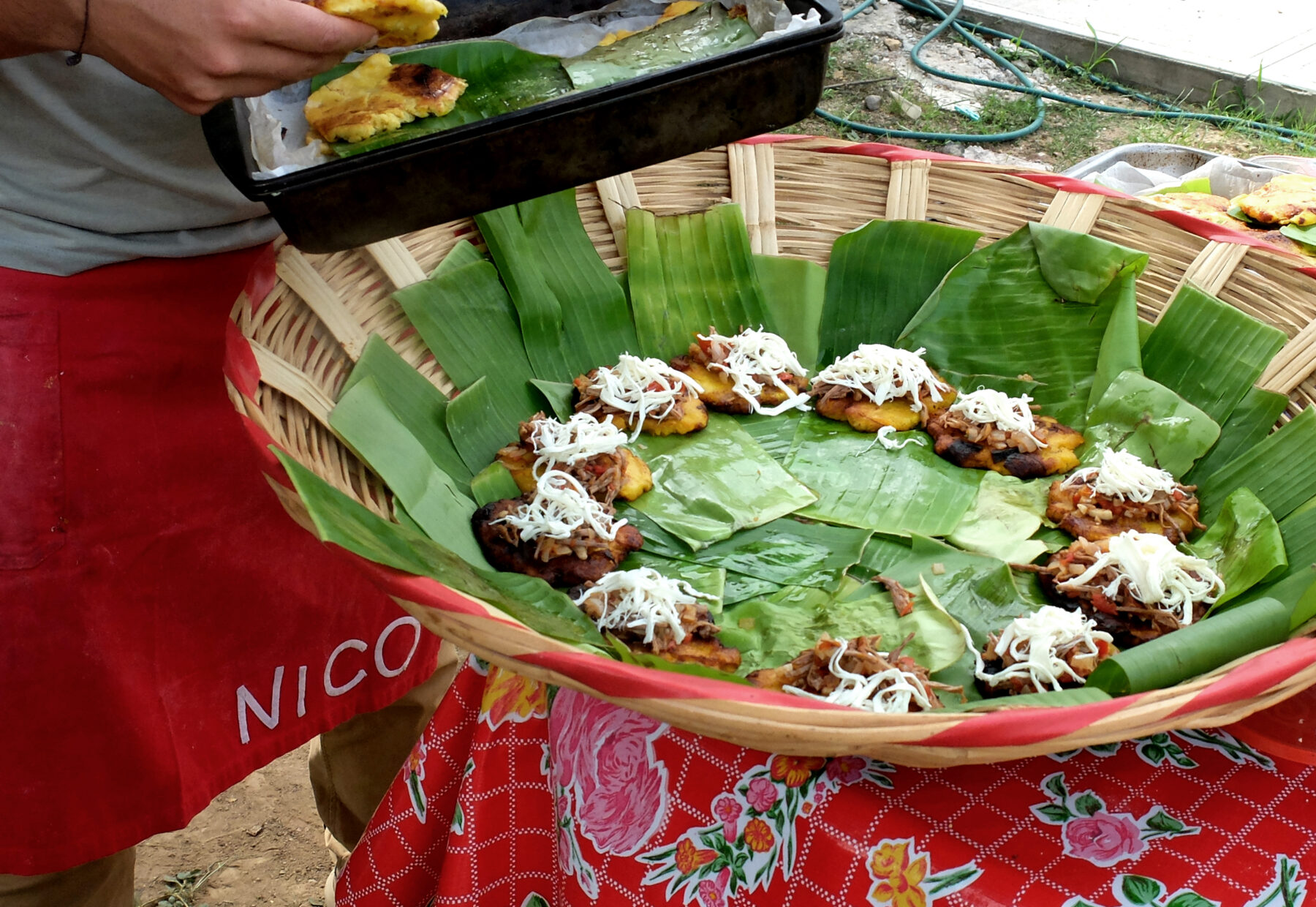
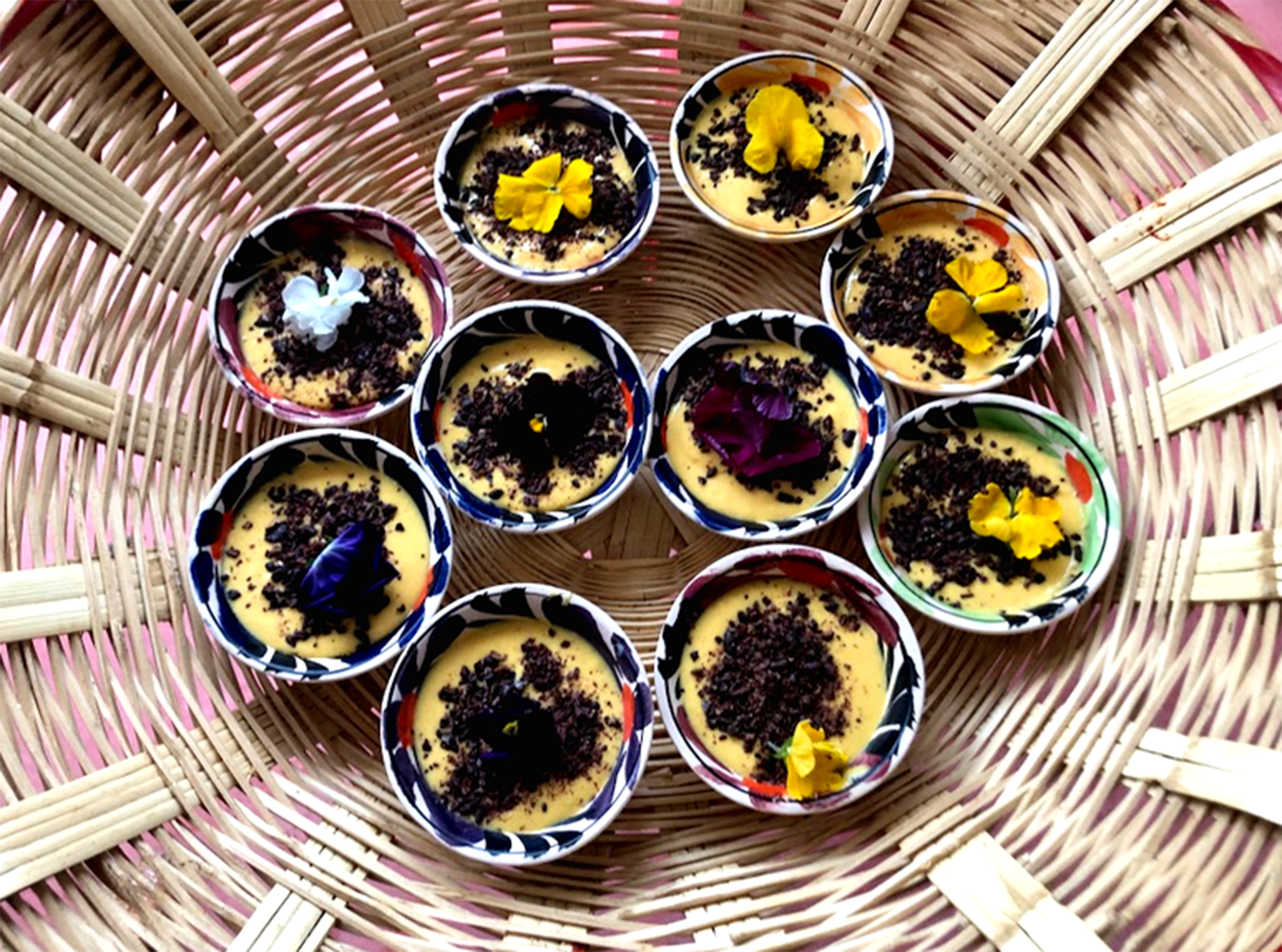
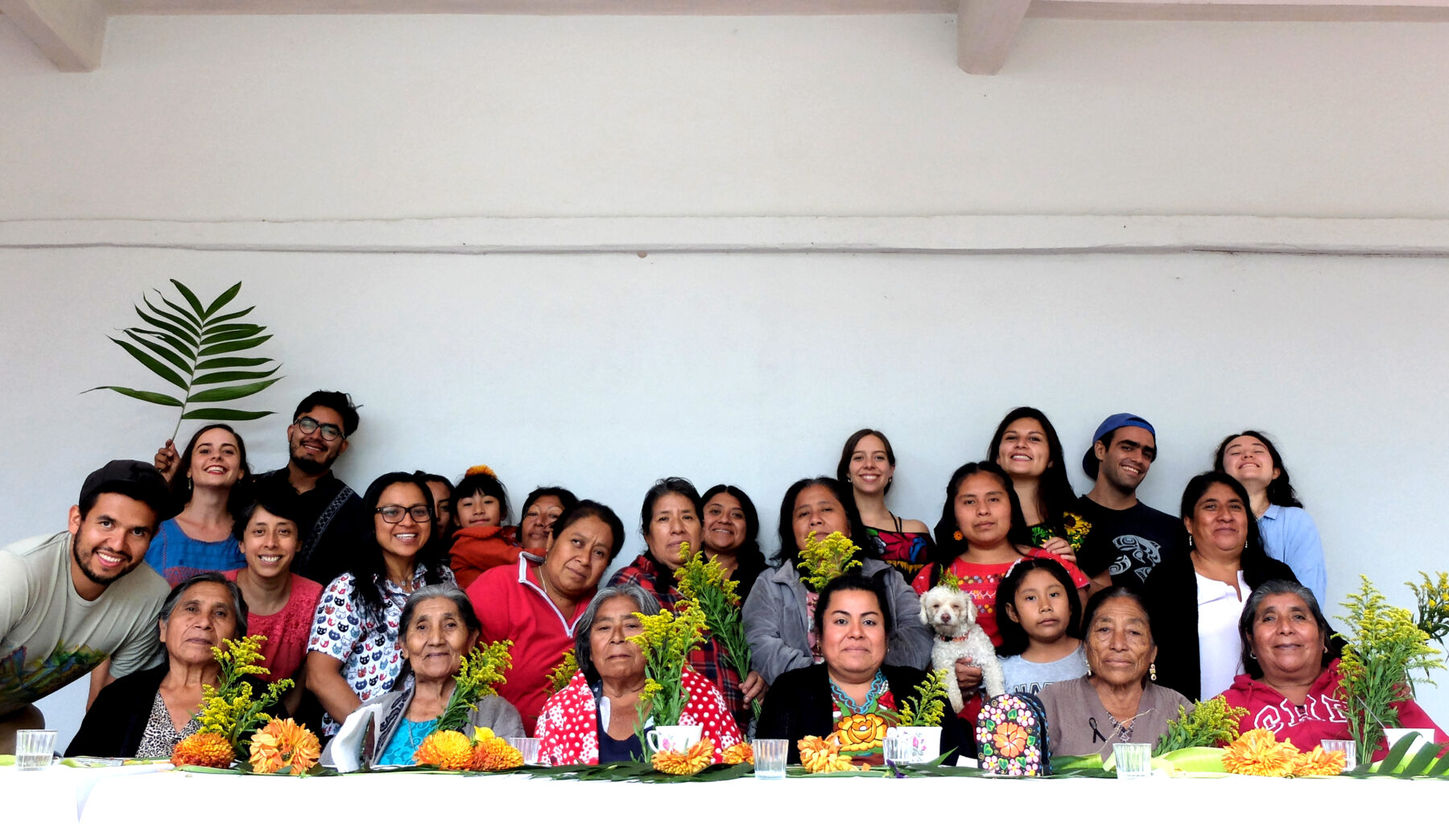
Cooks from Santo Domingo Tomaltepec
Virginia Garcia Canseco
Carmen Santiago Martinez
Juana Maetinez Miguel
Ines Ramirez Martinez
Ernestina Santiago Bautista
Graciela Cortes Ramirez
Felicitas Martinez Robles
Text by Lucía Pérez Volkow and Nicolás Roldán.
In collaboration with Emilio, Francisco, Daniela, Sharon, Eréndira, Paola, Amanda.